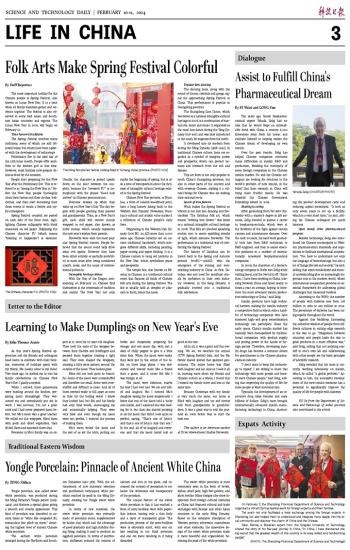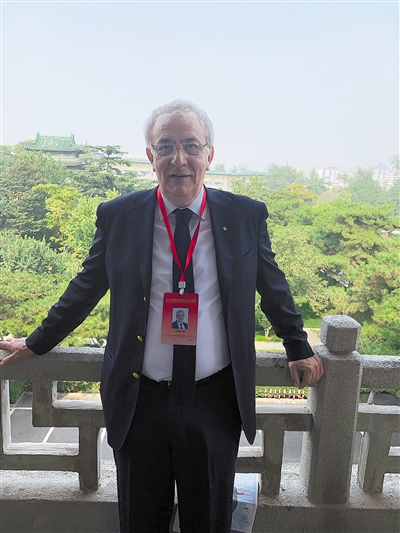
 |
| Yehuda Zelig. (COURTESY PHOTO) |
Ten years ago, Israeli biopharmaceutical expert Yehuda Zelig had no idea that he would forge an unbreakable bond with China, a country 6,000 kilometers away from his home, and dedicate himself to helping realize the Chinese dream of developing its own insulin.
Over the past decade, Zelig has helped Chinese companies overcome many difficulties in insulin R&D and production, breaking the monopoly of some foreign companies in the Chinese insulin market. He and his Chinese colleagues are looking for solutions to the world's problem of new insulin, in the belief that their research in China will bring more fruitful results. He was awarded the Chinese Government Friendship Award in 2019.
Sharing is caring
After graduating from Tel Aviv University with a master's degree in life sciences, Zelig decided to pursue a career in biopharmaceuticals, which were at the forefront of the fight against certain cancers and autoimmune diseases. Over the next 20 years, his hard work gradually took him from R&D technician to R&D engineer, and then to senior executive positions in a number of internationally renowned biopharmaceutical companies.
In 2009, the chairman of a biotechnology company in Hefei met Zelig while visiting Israel, and the two hit it off. "Since then, I have been working in China, traveling between China and Israel nearly 10 times a year on average, hoping to introduce the most advanced insulin production technology to China," said Zelig.
Insulin products have high technical barriers, making the insulin industry a competitive field in which only a handful of technology companies who have mastered high-end gene recombination technology can participate. Since the early 1990s, China's insulin market has basically been monopolized by multinational companies, with product supply and pricing power in the hands of foreign parties. Therefore, developing insulin drugs has become a common dream for practitioners in the Chinese pharmaceutical industry.
"I don't want to keep this technology to myself. I am willing to share this technology with more people and benefit more Chinese people," said Zelig, adding that improving the quality of life for more people is what motivates him.
Typically, the development of an innovative drug takes decades and costs billions of dollars. Zelig's team brought internationally advanced insulin manufacturing technology to China, shortening the product development cycle and reducing capital investment. "It took us only seven years to set up a facility, which is a very short time," he said, adding his Chinese colleagues are quick learners.
Open minds drive pharmaceutical progress
Besides technology, Zelig also introduced his Chinese counterparts to Western pharmaceutical standards and regulations to facilitate international cooperation. "You have to understand not only the language of biotechnology, but also a lot of things like law and society," he said, adding that open-mindedness and mutual understanding play an increasingly important role in the modern world, where international cooperation provides an essential framework for addressing global challenges that transcend borders.
According to the WHO, the number of people with diabetes rose from 108 million in 1980 to 422 million in 2014. The prevalence of diabetes has been rising rapidly throughout the world.
Against this backdrop, harnessing the collective wisdom of people from different cultures in cutting-edge research is the way to go. "Integration between countries and people leads the way to great products in a more efficient way," said Zelig, adding that not isolating oneself in one's own lab and collaborating with other people are the basic principle of scientific research.
Zelig revealed that his team is currently working intensively on insulin, which he called "a global problem." According to him, the successful development of the new insulin medicine has a potential to significantly improve the quality of life for people with diabetes.
XU Jie from the Department of Science and Technology of Anhui province also contributed to the article.


 Next
Next




